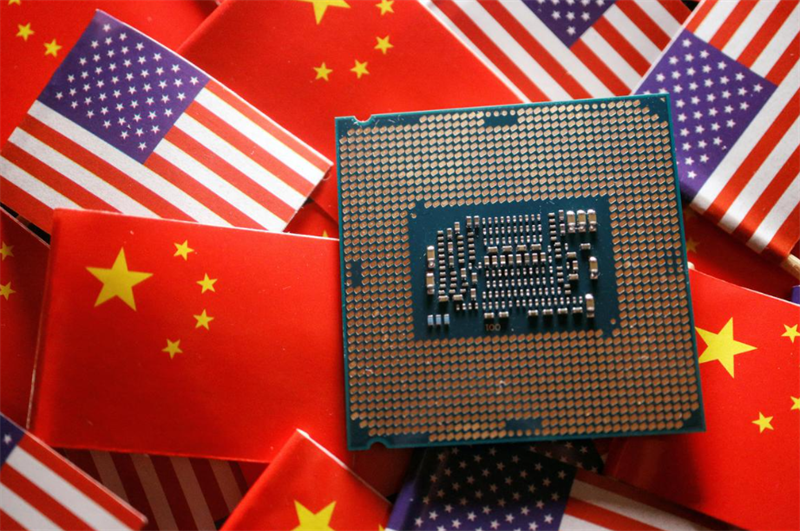China has introduced a new rule redefining how the origin of imported semiconductors is determined—one that is already reshaping global supply chains and impacting major U.S. chipmakers. Amid intensifying trade tensions with the United States, the China Semiconductor Industry Association (CSIA) issued guidance on April 11 stating that the "country of origin" for chips imported into China will now be based on the wafer fabrication location, not where the chips are designed or packaged.
This rule change exempts chips produced by Taiwanese foundries such as TSMC, UMC, and Vanguard—despite the fact that many of these chips are designed by American firms including AMD, Nvidia, and Qualcomm. Because China views Taiwan as part of its territory, chips fabricated there are not considered imports from the United States, thereby escaping the newly imposed retaliatory tariffs of up to 125%.
In contrast, companies that manufacture chips within the United States—such as Intel, GlobalFoundries, and Texas Instruments—now face tariffs as high as 84%. These penalties apply regardless of where the company is headquartered or where the chip was designed. Only the physical location of wafer fabrication counts under the new interpretation.
The announcement has had immediate effects. Some Chinese importers have paused semiconductor orders due to uncertainty over pricing and customs classification. “No one wants to quote prices right now. The chips are still in the air—by the time they land, the market may have changed,” said a customs broker interviewed by local media.

Industry analysts say the rule is a strategic move by Beijing. On one hand, it keeps China's factories running by allowing continued imports of advanced chips fabricated in Taiwan. On the other, it delivers a direct blow to American manufacturers that rely on U.S.-based fabs. It also sends a geopolitical signal—reinforcing China's stance that Taiwan is not separate from the mainland, even in trade classification.
The decision is also expected to accelerate China's push toward semiconductor self-sufficiency. Domestic chipmakers specializing in mature process nodes—especially those with local foundry capabilities—are now more competitive. Chinese analog chipmakers like SG Micro, Maxic, and SGMICRO, for instance, stand to benefit from the rising costs of imported U.S. chips.

The stock market has already responded. On April 11, shares of many Chinese semiconductor companies surged, with some jumping more than 20% in a single day. According to financial disclosures, 28 semiconductor firms listed in Shenzhen are expected to report a combined net profit increase of up to 54% for 2024. R&D spending also climbed 32.5% year-on-year, signaling growing momentum in the domestic industry.
Analysts also point to three segments in China likely to benefit most: analog chips, compute processors, and semiconductor equipment. Analog ICs from U.S. giants like Texas Instruments and Analog Devices now face higher duties, making domestic alternatives more attractive. Meanwhile, Chinese CPU and GPU makers such as Loongson, Hygon, and Cambricon may gain market share due to their lower prices and growing ecosystem support.
On the equipment side, China's dependence on U.S. tools for etching, deposition, and metrology has long been a bottleneck. But firms like Naura Technology and Advanced Micro-Fabrication Equipment Inc. are ramping up capabilities, supported by rising demand and national policy tailwinds. Domestic M&A in the semiconductor space has also accelerated, with nearly 50 deals recorded in just the past six months.
In sum, China's reclassification of chip origin based on wafer fabrication is more than just a customs adjustment—it's a calculated trade strategy. It weakens U.S. chipmakers who manufacture domestically, strengthens Taiwan's role in China's tech supply chain, and turbocharges Beijing's semiconductor self-reliance ambitions. For the global chip industry, the implications could be far-reaching and long-lasting.
+86 191 9627 2716
+86 181 7379 0595
8:30 a.m. to 5:30 p.m., Monday to Friday
